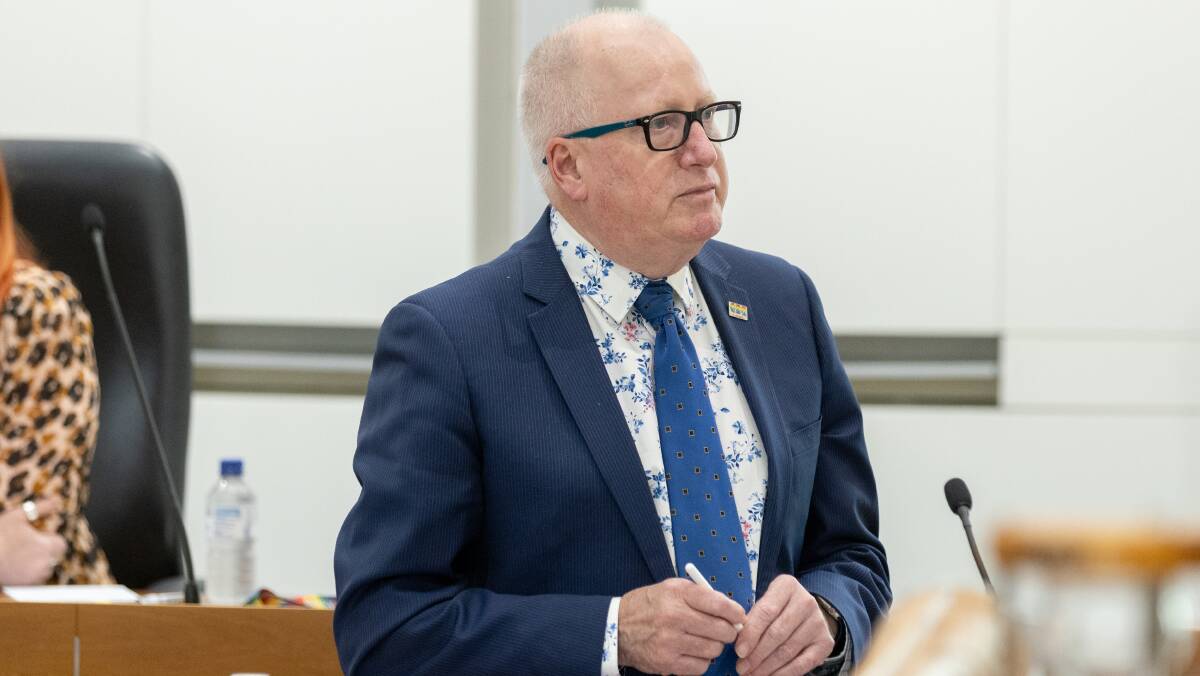
The ACT's Planning Minister said urban sprawl to create more greenfield developments in the ACT would result in higher costs for young people as the territory's opposition continued its attack against the government's urban infill policy.
Mick Gentleman said greenfield developments were very expensive and came at a greater price tag due to infrastructure and transport costs.
But demand for single-residential blocks has continued to surge in the ACT as the median house price for Canberra skyrocketed above $1 million.
Sales ballots for blocks in new suburbs have also been overwhelmed. The first blocks in Macnamara, in Canberra's north, were released in a ballot last month - 12,300 buyers applied for 71 blocks.
The ACT's planning policy has slated that 70 per cent of future dwellings in the territory will be in already existing suburbs as part of a densification push. The Canberra Liberals argue this policy has caused Canberra house prices to surge.
Mr Gentleman defended the ACT government's planning policies when pressed about the issue in a Planning, Transport and City Services inquiry on Thursday.
He said the government needed to offer choices to Canberrans and this included apartments. He also said more greenfield developments would actually have a greater cost into the future.
"It's a cost on future Canberrans so young people wanting to get into the market for example will be paying a lot more if we have urban sprawl for the cost of infrastructure, transport costs and those sorts of imperatives that go day-to-day with living in a city," Mr Gentleman said.
"We want choice for Canberrans into the future, you should be able to have the choice ... on a large block with a big backyard if you want to or you might want to live in an apartment closer to city services or public transport."
Opposition housing spokesman Mark Parton argued that the government had not offered choice.
"How can you possibly assert that you're offering housing choices to people," Mr Parton said.
"[Those who missed out on the sales ballot] are desperately trying to get on that life raft like at the edge of the Titanic and are watching it roll away. How can you possibly suggest to them that they've been offered a housing choice."
Mr Parton also attempted to press government officials on how long it would take before the ACT would run out of land to be developed.
However, officials said they could not answer this as investigations were ongoing to examine how much land on the ACT's western edge could be developed.
The ACT's planning directorate is undertaking a study into how the 9800-hectare land could be developed. The land is bordered by the Murrumbidgee River and existing areas in Weston Creek, Molonglo Valley and Belconnen.
It includes nine blocks which were controversially bought by the ACT government between 2014 and 2017.
MORE A.C.T. POLITICS NEWS:
- Flammable cladding assessments underway for 16 private ACT buildings
- ACT's procurement issues may be 'endemic': integrity commissioner
- Racing Minister rejects 'wild speculation' ACT is considering horse racing ban
ACT chief planner Ben Ponton said work to investigate the area's potential could take seven to 10 years but he also could not provide an indication of how many dwellings could be built in the areas.
"In terms of the western edge work that is an important next step in terms of providing for all that housing choice," he said.
"That doesn't happen overnight, it's important that we undertake relevant studies in a sequential and considered way."
Mr Ponton said it was important to take into consideration the ecological values of the site.
"Not all of the areas identified in the planning strategy for the western edge will be developed and nor should it be developed for more residential because importantly, the work we're doing now is identifying those really important environmental and cultural values and helping us understand service costs," he said.
"Some of the land would be too expensive to service.
"So what we're trying to do is make sure that what we take up for resettlement has the least amount of [ecological] value, and that we protect those areas with a higher [ecological] value in the mind."







